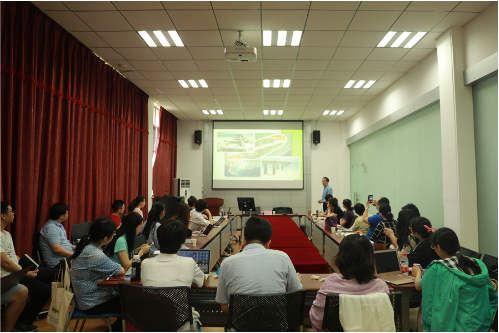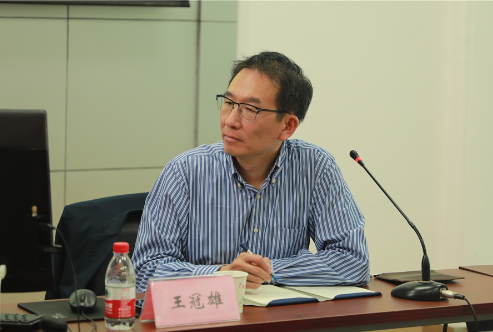On 12 June 2018, Prof. Wong Goonhung, National Taiwan Normal University Graduate Institute of Political Science, delivered a talk on South China Sea Dispute and China’s challenges. Associate dean of Wuhan University China Institute of Boundary and Ocean Studies (CIBOS), Kong Lingjie, hosted the seminar. Cheung Haiwen, Director of China Institute for Marine Affairs (CIMA), Gao Shengti, Head of Hainan University Research Institute for International Judicature and Arbitration, Yang Li, Deputy Director of Research Center for Ocean Law and Policy in National Institute for South China Sea Studies, attended the symposium as honored guests. Teachers and students from CIBOS and Institutes for International Studies (IIS) participated in this academic seminar.

In his speech, Prof. Wong expounded on South China Sea dispute from three aspects including island regime and challenges, historical archives and challenges and islands and reefs construction and freedom of navigation. He analyzed articles relating to definition of island under UNCLOS with theories combining politics, international relations and law.

(Prof. Wong Goonhung)
Prof. Wong discussed about island regime under UNCLOS based on definition stipulated in Article 121(3) of the Convention. Prof. Wong believed that there is almost no difference between reef and island in terms of definition literally, ‘surrounded by water, which is above water at high tide.’ But when it comes to demarcation, islands can have 200 nautical miles exclusive economic zone (EEZ) while reefs can only have 12 nautical miles territorial sea and 12 nautical miles contiguous zone. Prof. Wong emphasized that stipulations about island regime under UNCLOS give considerations to interests of all parties,which leads to an ambiguous outcome on text version of island regime. This further aggravates divergence on recognition of islands and reefs by countries.
In addition, Prof. Wong introduced basic situation of Taiping island, the biggest island in South China Sea, based on his own field trips, and shared Taiwan’s short term historical materials results about South China Sea. In the end, Prof. Wong interacted with teachers and students present, topics discussed including interpretation of the dotted line in South China Sea, America’s conventional novelty, legal status of ‘default’ in Public international law, significance of South China Sea territory acceptance in 1946, conflict between America’s freedom of navigation operations (FONOP) and rights to freedom of navigation and etc..
(Rewritten by Yu Minna)
(Edited by Fu Shanshan)
